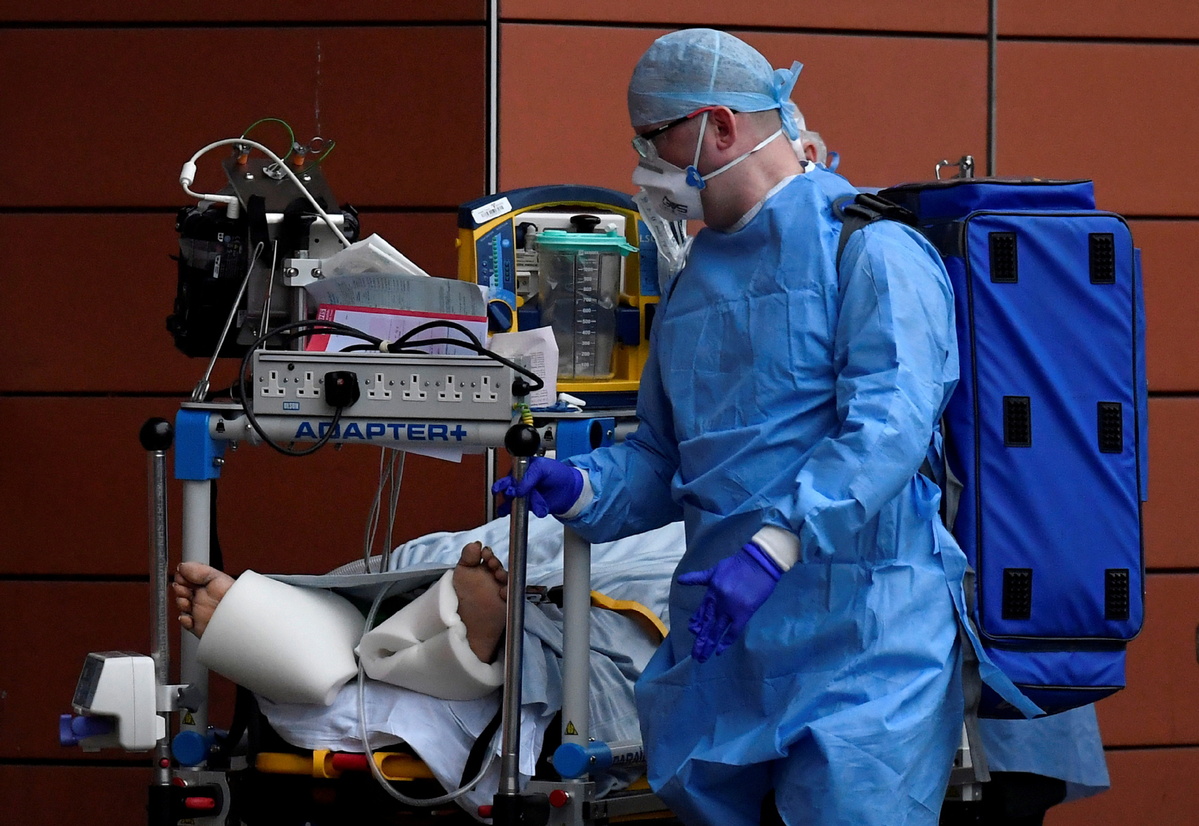UK virus cases, hospitalizations rising


With new cases of COVID-19 multiplying fast in the United Kingdom and hospital admissions attributed to the disease skyrocketing, the government has admitted the nation has "challenging" months ahead.
The BBC quoted government adviser Andrew Hayward, a professor of infectious disease epidemiology at University College London, as saying there is "huge potential for the (National Health Service) to come under a lot of pressure" in the coming weeks.
He made the observation as the number of new daily COVID-19 cases rose to its highest level since mid-July, with 49,156 cases reported on Monday. On Tuesday, the daily death toll was 223, which was a significant rise on the 45 from the day before.
The wave of new infections meant the number of people in the 65-to-84 age group admitted to hospital last week because of COVID-19 rose by 19 percent.
Downing Street said the sharp rise in cases and hospitalizations had been predicted and that the prime minister, Boris Johnson, was keeping a "close watch".
The worsening situation has led some experts to predict the nation could be heading for another lockdown, or at least the reintroduction of measures, such as mask-wearing, and encouragement of working from home.
The Daily Telegraph said on Tuesday half of all UK adults now think another lockdown is inevitable.
Quoting the results of a survey conducted by Savanta ComRes, the paper said 49 percent of Britons expect another lockdown in 2021. Also, 74 percent said they were concerned about a winter wave of infections.
The paper said, despite all the pain the UK has experienced since the pandemic began, 19 percent of Britons think the worst is still to come.
The Daily Telegraph quoted Chris Hopkins, of Savanta ComRes, as saying: "While it may feel to many that the UK is out of the woods with (novel) coronavirus, there is still an underlying feeling-or perhaps fear-among the public that there are more restrictions, including lockdowns, to come."
The results of the survey were published as experts warned that too few people in vulnerable groups have had booster jabs.
Official NHS figures show only half of those aged 80 and older have had a third dose.
With the UK declaring a 30 percent jump in new COVID-19 cases on Sunday, Neil Ferguson, a professor and member of the government's scientific advisory group for emergencies, said European Union nations have retained more virus-fighting measures than the UK and are doing better as a result.
He said they are not seeing "case numbers which are going up as fast as we've got".
"Clearly, people need to be aware that we have currently higher levels of infection in the community than we've almost ever had during the pandemic," he said on Radio 4's Today program.
He said case numbers and hospitalizations have doubled around every five weeks.
"I do think it's critical we accelerate the booster program," he added.
With the threat of further lockdowns looming in the UK and the importance of vaccinations being emphasized, it has emerged that a jab based on traditional vaccine technology that was initially rejected by the UK authorities is actually as effective as the Oxford/AstraZeneca vaccine.
The inactivated whole-virus vaccine produced by the French pharmaceutical company Valneva can be stored in a regular refrigerator and made relatively cheaply, The Guardian newspaper reported.































